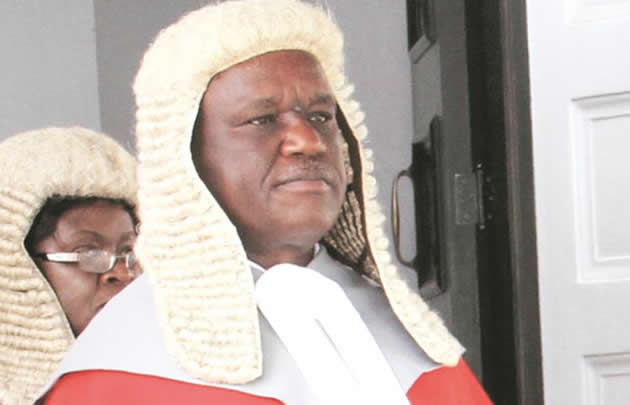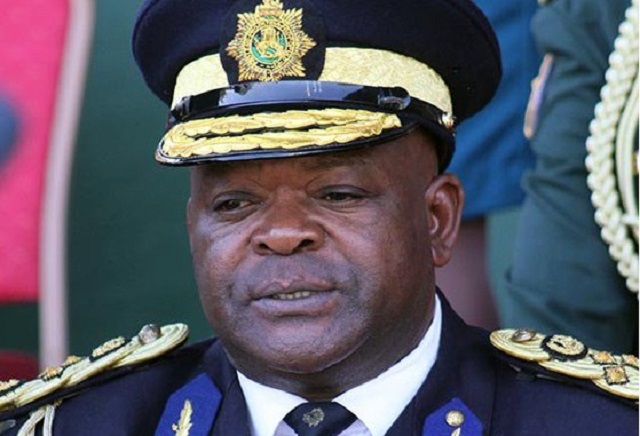When democracy reaches ridiculous levels

Nqobile Tshili
The country will next month hold harmonised elections in which, for the first time in history, as many as 133 political parties and dozens of independent candidates could contest.
Citizens will be spoilt for choice when they cast their votes if the 133 parties that are registered with the Zimbabwe Electoral Commission (Zec) actually participate in the July 30 harmonised elections.
The announcement of existence of these political parties has sent shockwaves among the country’s citizens who have questioned the authenticity of some of these political organisations.
Political analysts have said the upsurge in the number of political parties was confirmation that democracy was thriving in the country.
Mr Michael Mhlanga, a political analyst with Leaders for Africa Network (LAN), said the existence of these political parties shows that the country is a healthy democracy.
“It’s a good reflection of a healthy democracy which attracts political interest from many silent voices. The outcome will be decided by an electorate which has a wide range of electoral choices, proving the victor to be competent as far as political craft is concerned,” said Mr Mhlanga.
However, the chairperson of Media and Society Studies at the Midlands State University (MSU), Professor Nhamo Mhiripiri, said the country’s democracy has escalated to ridiculous levels.
“In the spirit of democracy that is acceptable, but when you look at rationality, logic, feasibility, you might question to say is this feasible is it necessary that we have so many parties. This is the paradox of democracy that it can reach even ridiculous levels,” he said.
Prof Mhiripiri said some of these political parties should merge as they might differ in names while sharing similar objectives.
He said for example Zanu-PF and Zapu joined together in 1987 as it proved they shared similar vision for developing the country.
Prof Mhiripiri said if a survey was to be conducted, it could be discovered that Zimbabweans only know less than five of the existing political parties.
The country’s political landscape is dominated by the ruling Zanu-PF party with MDC-T being the most prominent opposition party.
Prof Mhiripiri wondered if the country’s diversity had reached unprecedented levels that the people no longer have any shared vision.
“Do we mean to say our people have that kind of divergence of opinion to the extent that they cannot settle for an all embracing idea which can include variegated nature of these political parties? Because most of them perhaps have identical ideas and it would be reasonable to unite than to have all these splitter groups that represent the same ideas,” he said.
Prof Mhiripiri said having an outrageous number of political parties could pose challenges for the country in adherence to international statutes on the holding of free and fair elections.
Others have even suggested that the sudden upsurge of political parties could be driven by the desire to commercialise democracy.
To back this assertion, two minority political parties —Zimbabwe Development Party led by Mr Kisinoti Mukwazhe and Voice of the People headed by Mr Moreprecision Muzadzi — recently filed an urgent chamber application seeking the deferment of the 2018 harmonised election to enable the amendment of the law to allow them to get State funding for their activities.
The law states that a political party that garners five percent and higher in national polls is entitled funding under the Political Parties (Finance) Act. This means that as the law stands, Messrs Mukwazhe and Muzadzi’s do not qualify for State funding.
In a ruling recently, Chief Justice Luke Malaba said politics is not an entrepreneurship project.
“The formation of a political party is not an income generating project. The taxpayer’s money cannot be used to fund upstart political parties which may not be bona fide. Placement of a reasonable limitation upon the payment of public funds to political parties is beyond controversy,” ruled Chief Justice Malaba.
“A situation where political parties are formed and registered to participate in a general election, simply to secure funding by the State, cannot have the effect of promoting multi-party democracy.”
Analysts also said having all these political parties could create a challenge for Zimbabwe’s media in terms of providing equitable coverage of their activities.
Zec in compliance with the constitution has called on the media to provide just coverage to all the political parties.
The commission’s acting chief elections officer Mr Utoile Silaigwana said equal coverage of all the political parties will assist the electorate to make informed decision before casting their votes.
National University of Science and Technology (Nust) Journalism and Media Studies lecturer and communications expert, Mr Blessing Jona, said it was unrealistic for the media to provide equitable coverage for all the start up political organisations.
“A party which does not have any presence in all constituencies across the country, a political party which does not have a communication department to handle its public relations and communication strategy at the end of the day is a political party which is neither here nor there,” said Mr Jona.
“Even though democratically that political party should have media coverage the question for media practitioners is how? Where do we start from? When there is only one individual. We don’t know who the political supporters are and how to reach that particular individual.”
Mr Jona said political parties should have activities that also attract media practitioners saying an election alone should not be the reason for disorganised institutions to expect media coverage.
“How can it be covered if it is in the shadows and the media gets invited to cover the events? If a political party is on paper at Zec, it’s number 115, it’s number 120 but it does not have clear political activities which all of us can see and citizens and which we are attending as citizens then what is there to cover,” said Mr Jona.
Zec chairperson Justice Priscilla Chigumba told a media briefing recently that the proliferation of political parties was a confirmation of multi-party democracy in the country.
Justice Chigumba said Zec will not be affected in its election preparation over the existence of over 133 political parties. “What I do want to say though is that traditionally, around every election cycle we see an upsurge of these political parties. But when we get to the Nomination Court, a lot of them fall by the way side because they will not be able to meet the Nomination Court requirements,” said Justice Chigumba.
“The fact that we have 127 political parties doesn’t mean we are going to have 127 political parties on the ballot paper. That’s a misconception. Only those political parties, only those candidates who will have fulfilled the requirements of the Nomination Court will appear on the ballot paper and I don’t think they will be more than 10.”
The Nomination Court will sit from June 14 to June 21.
Zec has given green light to contesting candidates to access nomination forms at its offices across the country.
@nqotshili













Comments